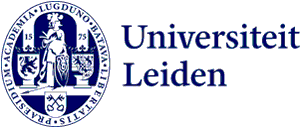Research into sustainable finance: ‘Vidi funding is an amazing opportunity’
Natascha van der Zwan is one of twelve scientist of Leiden University that have been awarded a Vidi grant of 800,000 euros in this round. The Associate Professor at the Institute of Public Administration conducts research into investment politics and how to make the financial system more sustainable. ‘This grant is an amazing opportunity to expand my research into sustainable finance.’
What does this grant mean to you and for your research?
Van der Zwan: ‘This Vidi provides me with an amazing opportunity to expand and continue my research into sustainable finance within my own research team for the next few years. This is the first time I applied for a Vidi, so I hadn’t really expected to be successful yet in this round.’
She sees the Vidi as confirmation of the importance of the research she has been working on for quite some time. ‘I’ve been researching the topic of sustainable finance for quite some time, both together with colleagues from Leiden University as well as from universities abroad. We can now continue to gather new insights into creating a more sustainable financial system. Within my field of comparative political economy, research into sustainable finance is still in its infancy. As a result, what really stood out for me was that one of the anonymous reviewers valued my project as a new opportunity to expand the academic community surrounding this research topic. When the Vidi results were published, I immediately received messages for colleagues from other universities who are also looking to start new projects on sustainable finance inviting me to exchange ideas. Which, of course, is tremendously inspiring and I’m really looking forward to it.’
When the news of her grant became public, she was rather occupied with other things. ‘I was at the end-of-term picnic of my daughter’s class. At that moment, I was more occupied with toddlers running everywhere than with my research. So, the message with the results came as a big surprise. It took at least a couple of days before the wonderful news had really sunk in.’
Can you tell us a bit more about your research and explain what sustainable finance is?
Van der Zwan: ‘My Vidi project focusses on sustainable finance by large investors such as insurance companies and pension funds. Sustainable investment refers to investments, for instance buying company stock or purchasing real estate, that aren’t solely done based on their profitability, but also to realise other targets. In this case: sustainability targets, such as reducing the CO2 output or promoting biodiversity. Institutional investors, such as insurance companies and pension funds, are certainly able to make a big difference, because they manage such a significant amount of assets. Yet, there is a lot of variation in different types of investors and also between investors from different countries and their way of investing sustainably. My research project attempts to better understand this variation and generate recommendations to encourage more large investors to truly start investing in a more sustainable manner.’
The academic uses a number of different methods. ‘The project aims to develop a new method, which we can use to better ascertain how many, and in what way, large investors are actually investing sustainably – because very little is known on the subject at the moment. The project will also compare legislation in different countries to gain more insight into why investors in certain countries are more active in sustainable investment than in other countries. In addition, we will visit financial organisations to find out how the decision-making process concerning sustainably investment functions within these organisations. We’ll also look at, for instance, the influence stakeholders and social movements have on the investment policies.’
Do you have any idea what the next five years will look like?
‘All in all, it’s an extensive and ambitious project, which I most certainly won’t be able to conduct on my own. Luckily, the funding will enable me to add a PhD candidate and a post-doc researcher to my team to jointly execute the project. For each of the subprojects we will use different research methods. Ranging from automated text analysis to participatory observations. The Vidi also provides me with the opportunity to learn from the researchers on my team and expend my own expert knowledge on methodology as a result.’
For Van der Zwan it is vital that she thanks her FGGA colleagues for the successful finance application. ‘This is rarely an individual achievement. In my case, I’ve been able to develop my ideas thanks to existing collaborations with colleagues in my field. And I’ve benefitted tremendously from the advice and feedback provided by my FGGA colleagues who have successfully applied for NWO funding in the past or have otherwise been involved with the NWO Talent programme. Thanks to them, I’ve been able to fine-tune my proposal and really showcase my proposal during the interview round.’
